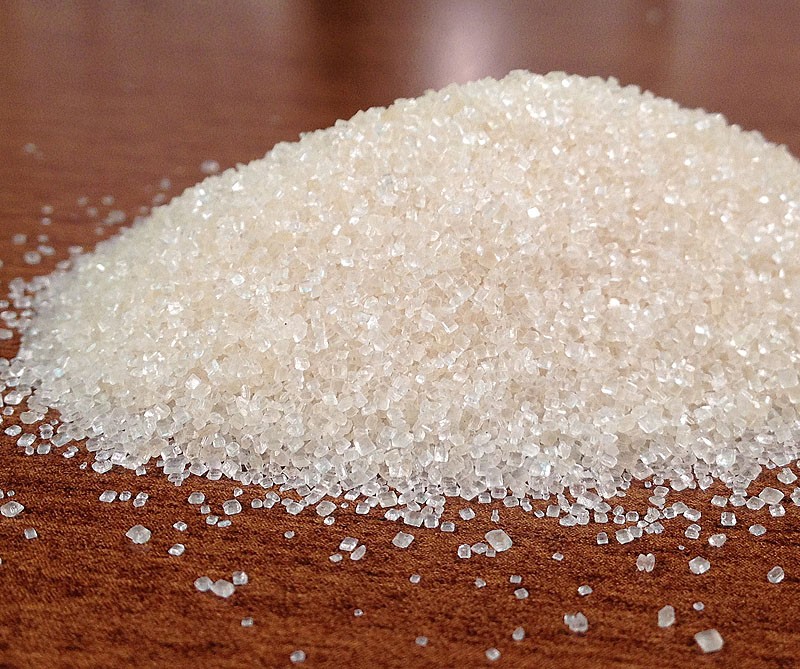A Comprehensive Introduction of the Health and Economic Ramifications of Walking Cane Sugar Handling on Local Communities
Cane sugar handling plays an essential function in shaping the financial landscape of regional communities, offering work chances and stimulating secondary markets. The health implications connected with high sugar consumption can not be overlooked, as they add to increasing rates of excessive weight and diabetic issues.
Economic Advantages of Cane Sugar Handling
Walking cane sugar processing supplies considerable economic advantages that prolong past the immediate farming market. The growing and handling of sugarcane create numerous work chances, from farming to manufacturing and distribution. This employment generation not just sustains regional economies yet also promotes neighborhood growth by offering secure earnings resources for families.
Additionally, the sugar industry stimulates secondary businesses, consisting of transport, equipment supply, and product packaging solutions (Cane Sugar Processing). As these industries expand, they add to a much more durable financial framework, improving total community strength. The export possibility of processed walking stick sugar better enhances economic benefits, positioning regions as affordable gamers in international markets
Financial investment in modern processing facilities can cause raised productivity and efficiency, thus minimizing waste and maximizing resource usage. This shift not only benefits the regional economic situation but also supports sustainability initiatives by minimizing ecological influences.
Additionally, the profits created from cane sugar handling can be reinvested in regional framework, education, and health care, advertising alternative area growth. Generally, the financial advantages of walking cane sugar processing are multifaceted, providing a structure for sustaining success in agricultural regions.
Health Risks Associated With Sugar Intake
Too much sugar usage presents considerable health risks that warrant significant focus. High consumption of included sugars, especially from processed foods and beverages, has been linked to numerous wellness difficulties. Among one of the most pressing issues is weight problems, as sugary diets add to a boosted calorie intake without providing important nutrients. This excess can result in metabolic conditions, including kind 2 diabetes mellitus, which has actually ended up being progressively prevalent in both children and adults - Cane Sugar Processing.
In addition, high sugar usage is related to cardiovascular condition. Elevated blood glucose levels can result in insulin resistance, a forerunner to various heart-related concerns. Additionally, sugar can have destructive impacts on dental wellness, leading to dental caries and gum illness, as germs in the mouth grow on sugar, producing acids that wear down tooth enamel.
In addition, emerging research suggests a prospective web link in between high sugar consumption and mental health and wellness problems, such as clinical depression and anxiety. As communities come to grips with these wellness threats, it becomes necessary to advertise awareness and encourage healthier dietary selections. Addressing sugar consumption is important not just for specific wellness but additionally for the overall well-being of local areas, highlighting the demand for thorough public wellness methods.
Environmental Influences of Sugar Production
Regularly ignored in discussions regarding sugar's implications is the significant ecological impact of sugar production. The growing of sugarcane typically demands substantial land use, causing deforestation, loss of biodiversity, and disruption of regional ecological communities. The conversion of woodlands and wetlands into sugar plantations can cause habitat destruction, harmful numerous varieties and altering ecological equilibrium.
Additionally, sugar manufacturing is resource-intensive, consuming significant amounts of water for irrigation. This can result in depletion of neighborhood water sources, adversely impacting both farming practices and area access to clean water. Furthermore, using chemical plant foods and pesticides in sugarcane farming can contribute to dirt destruction and water contamination, as runoff from these chemicals goes into neighboring rivers and lakes, impacting aquatic life and human health.
The ecological footprint includes the handling stage, where energy usage and waste generation more aggravate environmental issues. Air pollution from burning sugarcane areas, together with greenhouse gas emissions, add to environment modification. As such, the ecological effects of sugar production warrant major factor to consider, urging stakeholders to adopt even more lasting techniques to minimize these adverse results on neighborhood communities and communities.
Task Production and Neighborhood Development
The ecological challenges posed by sugar manufacturing are typically counteracted by its possibility for financial advantages, specifically in job production and area development. The walking stick sugar sector functions as a significant source of work in several backwoods, providing tasks throughout numerous skill levels, from agricultural labor to handling and circulation roles. This employment not just supports individual families yet also adds to the overall financial vigor of neighborhood areas.
Additionally, the establishment of sugar handling facilities stimulates supplementary services, such as transportation solutions, recommended you read tools supply, and maintenance providers. As these services prosper, they produce added work and boost neighborhood economies. The income generated from the sugar market likewise brings about increased tax profits, which can be reinvested right into neighborhood services such as infrastructure, education, and healthcare advancement.
In addition, the sugar market typically participates in neighborhood development campaigns, such as supporting regional colleges and health programs, thus boosting the lifestyle for homeowners. By cultivating strong area connections and advertising economic growth, the walking stick sugar handling industry plays an essential duty in uplifting local populaces, making it an essential component of sustainable growth methods in sugar-producing areas.
Balancing Health and Economic Growth
In browsing the complexities of walking cane sugar handling, a vital difficulty depends on balancing health considerations with economic growth. The sugar industry significantly adds to local economic situations by generating work, boosting related industries, and enhancing tax earnings. However, the health and wellness ramifications connected with excessive sugar consumption can bring about persistent diseases such as weight problems, diabetic issues, and cardio issues, which can concern public wellness systems and lessen labor force performance.

Additionally, governing structures can play a critical function in directing market methods in the direction of even more sustainable and health-conscious approaches. By fostering partnership between federal government bodies, health and wellness organizations, and the sugar industry, communities can navigate the duality of health and wellness and economic development, making sure that the advantages of walking cane sugar handling are equitably shared while prioritizing public health and wellness.
Conclusion
Finally, the processing of walking stick sugar offers both considerable economic benefits and noteworthy health and wellness threats for local neighborhoods. While it cultivates work creation and boosts local see page development, the involved wellness worries, particularly relating to obesity and diabetic issues, necessitate a cautious harmonizing act. By promoting accountable consumption and investing in community education and lasting methods, it is possible to maximize financial benefits while lessening unfavorable health results, therefore making sure a much healthier future for neighborhood populaces.
In addition, sugar can have harmful results on oral wellness, resulting in tooth cavities and periodontal illness, as microorganisms in the mouth flourish on sugar, you could try these out creating acids that wear down tooth enamel.
Resolving sugar usage is vital not just for specific health and wellness yet additionally for the overall wellness of local areas, emphasizing the requirement for extensive public health methods.
Often neglected in discussions regarding sugar's effects is the substantial ecological effect of sugar production. The health and wellness implications connected with too much sugar usage can lead to chronic illness such as excessive weight, diabetic issues, and cardio issues, which can problem public health and wellness systems and decrease workforce efficiency.
